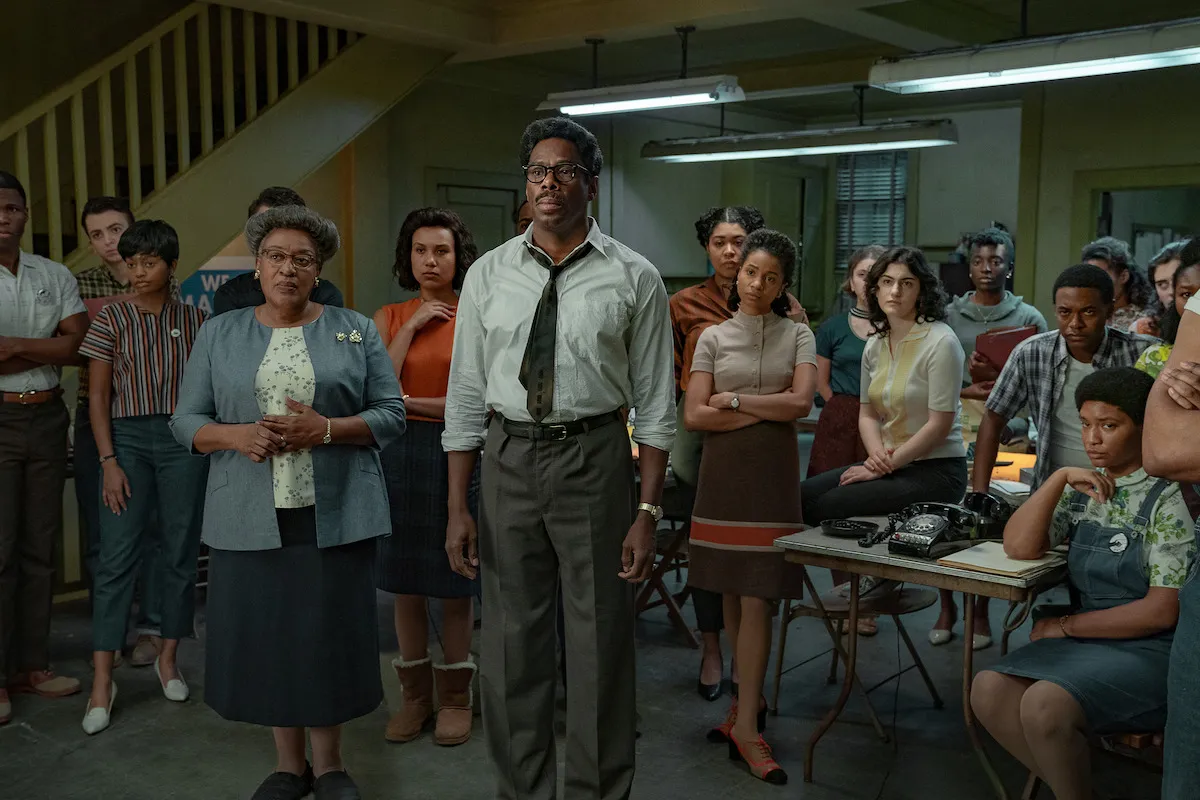
Film Review: Rustin
Film Reviews
Rustin
Director: George C. Wolfe
Higher Ground
In Theaters: 11.03
While history tends to remember those who were in the spotlight, it’s often the people waiting in the wings who make the biggest difference. Rustin is a true and long overdue portrait of a visionary who made the world a better place, even if that world wasn’t ready to acknowledge his contributions.
In the early 1960s, Bayard Rustin (Coleman Domingo, Candyman, Ma Rainey’s Black Bottom), an openly gay Black man, fights for equality alongside Dr. Martin Luther King, Jr. (Aml Ameen, The Maze Runner) until the threat to leak a false rumor that the two are having an affair results in King severing ties with Rustin. The story then shifts to 1963 as the movement to pass a sweeping Civil Rights Act is languishing. In a moment of inspiration, Rustinconceives of a historic gathering, a peaceful yet pointed march on Washington, D.C. on a scale that cannot be ignored. In order to make it happen, he must win support from the NAACP and fight the opposition of Congressman Adam Clayton Powell Jr. (Jeffrey Wright, The Batman)—to do this, he will need his old friend Dr. King on board. One of the most significant events in American history is put into motion as Rustin fights tirelessly against prejudice, while his fellow activists do their best to keep him in the shadows for fear that his sexuality will undermine their cause.
Director George C. Wolfe (The Immortal Life of Henrietta Lacks, Ma Rainey’s Black Bottom) is a Tony Award–winning theater director still working to find his footing in film, though his ability to energize an ensemble of actors is undeniable. Rustin cements an equally impeccable sense of pacing and storytelling, and while the film is at its best when it feels like a play, it’s still a big feather added to Wolfe’s cinematic cap. The screenplay by Julian Breece (When They See Us) and Oscar-winner Dustin Lance Black (Milk) is filled with sparkling dialogue and soulful soliloquies, which adds to the stage play aesthetic, though it’s all executed with such fervor that it’s hard to find any faults. While the uneasy mix of real footage with not-entirely-convincing visual effects make the larger sequences of the march itself the most problematic section of the film, it’s still rousing and emotional, leading to a beautiful ending.
Domingo gives an electrifying and unforgettable performance bringing Rustin to life, one that is likely to define his career. Domingo doesn’t shy away from giving the portrayal a certain flamboyance that’s true to the real Rustin’s personality without ever milking it or using it as cheap means of characterization, and the dignity and passion he embodies drives the movie from beginning to end. The supporting players are all terrific, with Glynn Turman (Super 8, The Way Back) bringing a towering presence to the film as union leader A. Philip Randolph. Johnny Ramey (Act Your Age) and Gus Halper (Dickinson) both give breakout performances as Elias and Tom, respectively—men who share romantic entanglements with Rustin while in opposite places from one another in terms of embracing their sexuality. If there was a bit of casting that I struggled with, it was Chris Rock as NAACP president Roy Wilkins. Rock does a credible job, yet he was arguably a bit too distinct and distracting a presence for such a film, even before the Oscar slap. Still, it’s a minor complaint and he does solid work.
Rustin is a touching monument to an often overlooked figure who played a vital part in moving our nation and society forward. At a time when there is so much pressure to push progress back by decades or more, we need movies like this one to jolt us into action and strengthen our resolve to continue the work of heroes. –Patrick Gibbs
Read more reviews of films concerning social progress:
Film Review: Mutt
Film Review: Golda